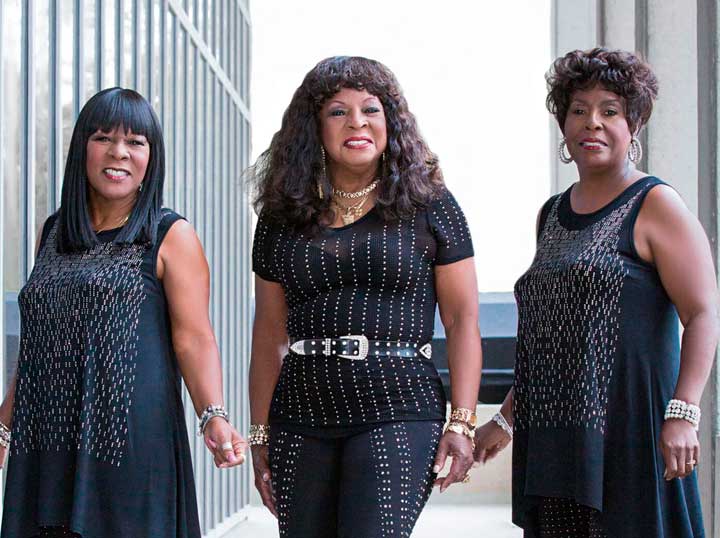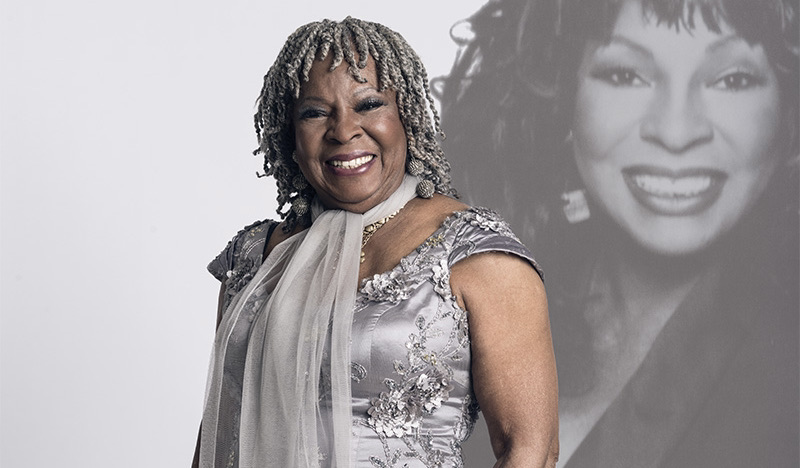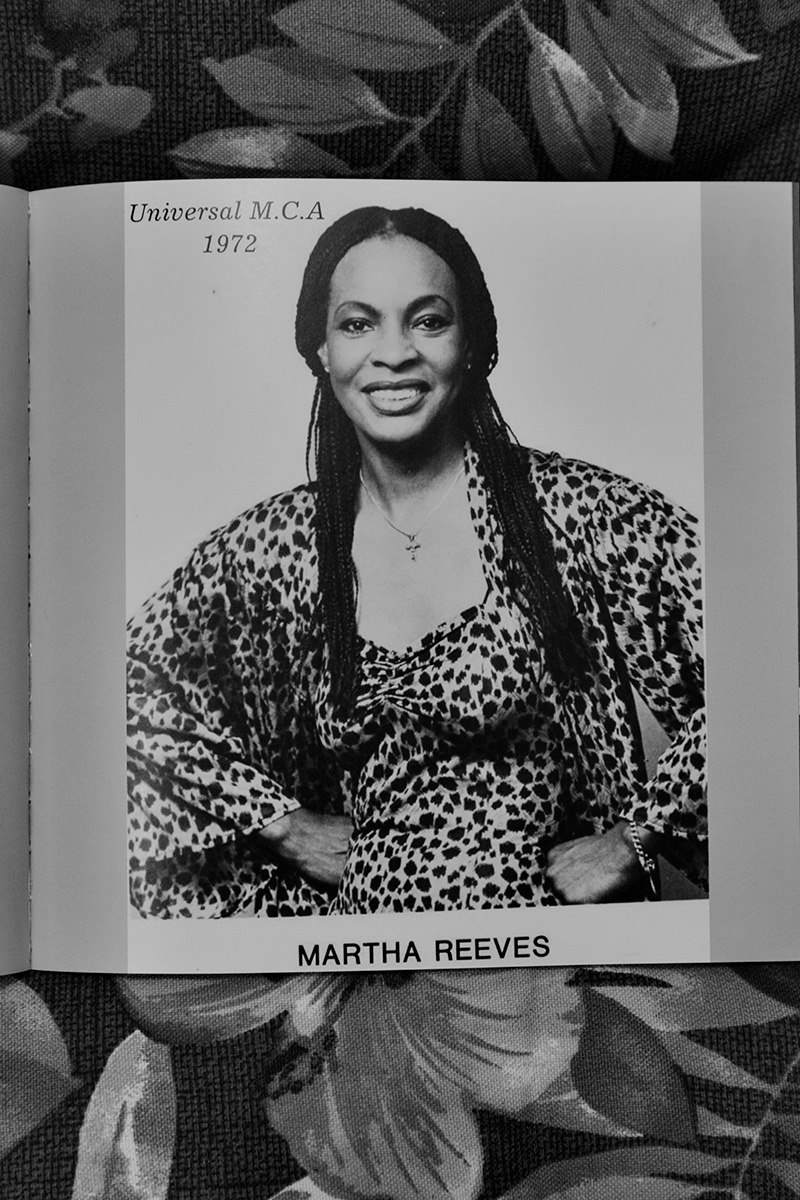Martha Reeves
Martha Reeves

Martha Rose Reeves, born on July 18, 1941, is a prominent American R&B and pop singer best known as the lead singer of the legendary Motown girl group Martha and the Vandellas. The group achieved significant success with over a dozen hit singles, including iconic tracks such as "Come and Get These Memories," "Nowhere to Run," "Heat Wave," "Jimmy Mack," and their signature song "Dancing in the Street."
Aside from her musical career, Reeves also ventured into public service. From 2005 to 2009, she served as an elected councilwoman in her hometown of Detroit, Michigan, U.S., demonstrating her commitment to her community and public affairs.
In recognition of her contributions to music, Martha Reeves and the Vandellas were rightfully inducted into the prestigious Rock and Roll Hall of Fame in 1995, solidifying their place in music history. Additionally, in 2023, Rolling Stone magazine honored Reeves by ranking her at number 151 on its list of the 200 Greatest Singers of All Time, further cementing her legacy as a remarkable vocalist.
Martha Rose Reeves was born in Eufaula, Alabama, as the first daughter of Elijah Joshua Reeves and Ruby Lee Gilmore Reeves. She was the third child among their 11 children. When she was just a baby, her family relocated from Eufaula to Detroit, Michigan. In Detroit, her grandfather, Reverend Elijah Reeves, served as a minister at the Metropolitan Church, where the family actively participated in the church's activities and choir. Music was deeply ingrained in the family, with Elijah playing guitar and Ruby enjoying singing. Martha and her siblings inherited their love for music from their parents.
During her time at Detroit's Northeastern High School, Martha received vocal coaching from Abraham Silver, who also worked with renowned artists such as Florence Ballard, Mary Wilson (of the Supremes), and Bobby Rogers (of the Miracles). Growing up on gospel music, Martha Reeves was inspired by artists like Lena Horne and Della Reese. She developed a passion for R&B and doo-wop music during her formative years. In 1959, Martha joined a group called the Fascinations, although she left the group before they ventured into recording.

In 1957, Martha Reeves became a member of a group called the Del-Phis, along with Rosalind Ashford, Gloria Williams, and Annette Beard. The Del-Phis, formed by Edward "Pops" Larkins, served as a sister group complementing his male vocal ensemble and enjoyed popularity as local performers.
During 1960 and 1961, Martha juggled multiple daytime jobs while pursuing her passion for singing jazz and blues standards at Detroit's esteemed nightclubs in the evenings. It was during one of her performances at the 20 Grand that Martha caught the attention of Motown's A&R director, Mickey Stevenson. Impressed by her talent, Stevenson invited Martha to audition and gave her his business card.
The following morning, Martha, using the stage name Martha Lavaille, showed up at Motown's Hitsville USA studios, unaware that she was supposed to schedule an audition. Stevenson, busy with other matters, asked Martha to answer phones temporarily. Martha, drawing upon her commercial courses in high school, efficiently managed the phones, took notes, and even handled payroll for Motown's Funk Brothers.
Eventually, Martha became Stevenson's right-hand woman at Hitsville, handling administrative tasks and even contributing to A&R work. By 1961, the Del-Phis had transformed into The Vels and recorded singles for Checker and Checkmate Records.
When Mary Wells couldn't make a recording session one day, Martha stepped in, and Martha and the Vandellas were born with "I'll Have to Let Him Go." Additionally, Martha and her group provided backing vocals for Marvin Gaye's "Stubborn Kind of Fellow" when the Andantes couldn't make it to the session.
The story is recounted slightly differently in the film Hitsville. Berry Gordy revealed that Motown sometimes recorded tracks without a singer present, which was against union rules. During a surprise visit by a union representative, Martha happened to be in the studio and ended up singing on the spot, leading to the birth of Martha and the Vandellas.

With her powerful vocals deeply rooted in gospel, Martha Reeves played a pivotal role in elevating Martha and the Vandellas from background singers to headlining stars. Their early hits like "Come and Get These Memories" and "Heat Wave" helped distinguish the group from their contemporaries like the Marvelettes and the Supremes.
Following the success of "Heat Wave," Martha and the Vandellas rapidly ascended to become one of Motown's premier acts, both in the studio and on stage. Martha remained the constant member of the group throughout its various lineups and incarnations. After original members Annette Beard and Rosalind Ashford departed, Martha recruited talents like Betty Kelly, Sandra Tilley, and even her sister Lois Reeves to fill the vacancies.
The group churned out signature hits like "Quicksand," "Nowhere to Run," "Jimmy Mack," and their iconic anthem "Dancing in the Street." Their electrifying performances weren't confined to the recording studio; they captivated audiences on popular TV shows like American Bandstand, Soul Train, and The Ed Sullivan Show, among others.
Martha and the Vandellas were also prominently featured in major publications, including Ebony, Jet, and Soul Illustrated, with Reeves herself contributing as a writer for Soul magazine.
After several lineup changes and the group's eventual disbandment in 1972, Martha negotiated her way out of her contract with Motown in 1972, coinciding with the label's move to Los Angeles.
In 1989, Martha Reeves, Rosalind Ashford, and Annette Beard filed a lawsuit against Motown for unpaid royalties dating back to 1972. The legal battle culminated in a settlement with the company in 1991, with Berry Gordy Jr. offering apologies for the delay in reaching an agreement. The terms of the settlement were not disclosed publicly.

References
- Huey, Steve. "Martha Reeves Biography". AllMusic.com. Archived from the original on August 7, 2019. Retrieved August 7, 2019.
- a b c Kroll, Vicki L. (August 31, 2010). "Motown Legend to sing at Music Fest". University of Toledo. Archived from the original on October 8, 2010. Retrieved December 16, 2010.
- ^ "The 200 Greatest Singers of All Time". Rolling Stone. January 1, 2023. Retrieved April 4, 2023.
- a b c d "Martha Reeves". TheSoulGuy.com. Archived from the original on May 10, 2008. Retrieved December 16, 2010.
- a b c d e f g h "Martha and the Vandellas". HistoryofRock.com. Retrieved December 16, 2010.
- a b c "Martha Reeves". GeneralEntertainment.com. Archived from the original on February 24, 2011. Retrieved December 16, 2010.
- a b c "Martha Reeves". NNDB. Retrieved December 16, 2010.
- ^ Barnhill, John Herschel (September 30, 2012). "Ashford-Holmes, Rosalind "Roz"". African American Studies Center. Oxford University Press. doi:10.1093/acref/9780195301731.013.39228. ISBN 978-0-19-530173-1. Retrieved March 18, 2021.









































